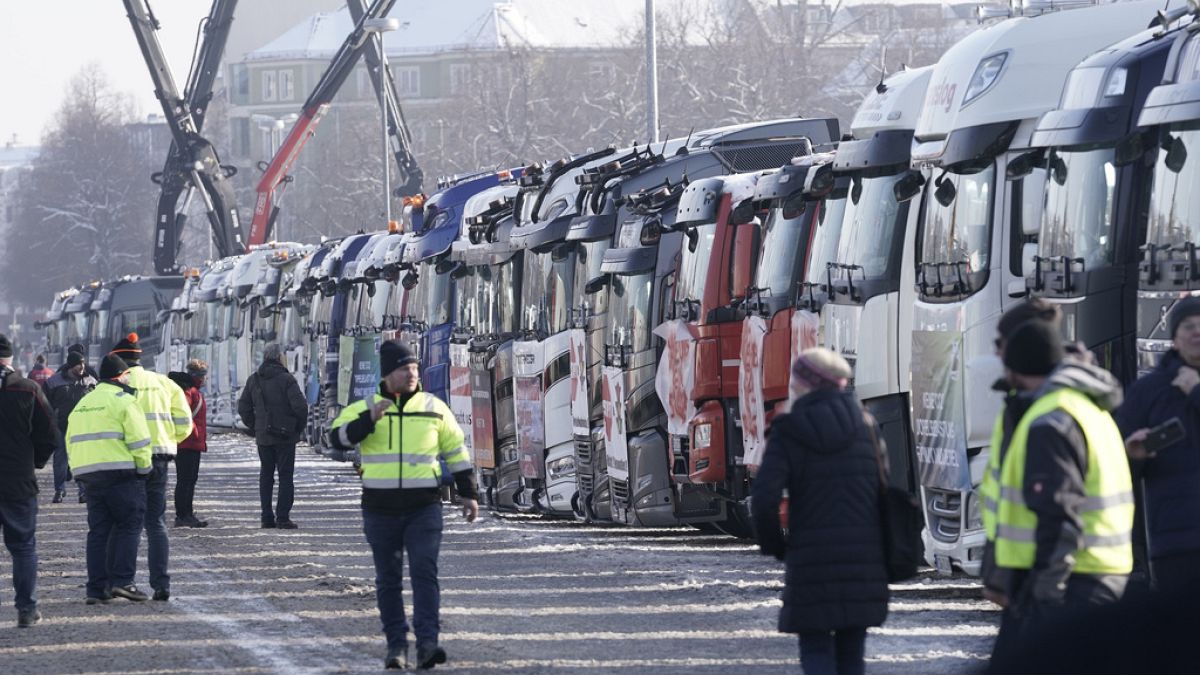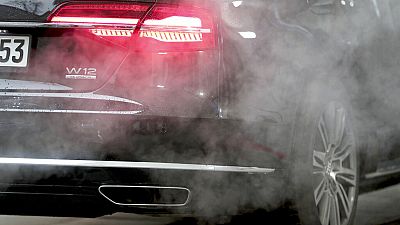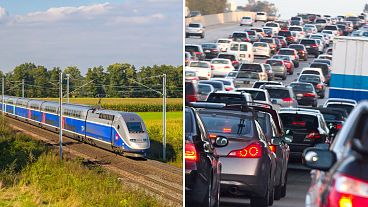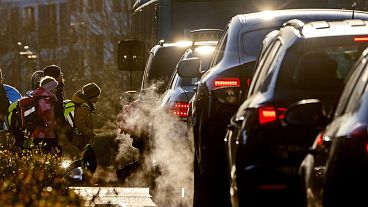The EU has taken another significant step in its efforts to clean up road transport, with a political agreement on CO2 standards for trucks and buses that amounts to a near-complete phase-out of diesel-powered models by 2040.
The average carbon dioxide output from new trucks and coaches sold in the EU must be 90% below current levels by 2040, European lawmakers have agreed, while city buses must be entirely emissions-free five years ahead of that date.
The decision, based on a European Commission proposal and the fruit of a back-room deal between MEPs and government officials in Brussels today (18 January), follows a similar agreement on a de facto ban on internal combustion-engine cars and vans, whose exhaust CO2 emissions must be zero from 2035.
Most heavy duty vehicles will be subject gradual tightening of CO2 standards, with emissions 45% below the current average by the end of this decade, rising to 65% in 2035. For urban buses, there is an interim target of 90% by 2030, although those deployed to run on inter-city routes will be subject to the lighter set of limits.
As happened with separate standards for cars and vans, political horse trading has resulted in the EU executive being tasked with assessing by 2027 the potential for registering lorries intended to run exclusively on CO2 neutral fuels, whose exhaust emissions would theoretically be captured upstream.
However, this is a potentially complex matter as it would involve not only setting in law precisely what kind of biofuels, or synthetic fuels such as e-diesel made with ‘green’ hydrogen, would qualify, but also devising a system that would prevent what are essentially conventional trucks from being run on fossil fuel.
Despite sundry exemptions – the rules do not apply to garbage trucks until 2035, for example, the agreement has been welcomed by groups campaigning to clean up road transport, the only significant sector to see greenhouse gas emissions rise, rather than fall, in recent decades – up by around a fifth since 1990, and now contributing a quarter of all CO2 output in the EU.
“The EU is clearly telling truckmakers when almost all their vehicles will need to be zero emissions,” said Fedor Unterlohner of the green group Transport & Environment. “European producers now have a clear trajectory to ramp up production of electric and hydrogen rigs and be ready for the challenge of Tesla and Chinese rivals.”
Representing carmakers, the European Automobile Manufacturers’ Association (ACEA) noted the incoming EU standards were the most stringent in the world, and said the timeline for implementation was “extremely challenging in the absence of vital enabling conditions”.
“Electric charging and hydrogen refilling infrastructure, comprehensive carbon pricing schemes, and meaningful support measures for transport operators to invest quickly: these are the key ingredients for rapidly decarbonising the heavy-duty transport sector, in addition to zero-emission vehicles,” ACEA director general Sigrid de Vries said in a statement.
The legislative text provisionally agreed in the so-called ‘trilogue’ talks, mediated by the Commission, remains subject to formal endorsement by the EU Council and European Parliament.



